The Kitchen is an excellent "classroom" that is fully equipped with tools and opportunities to develop early mathematical skills.
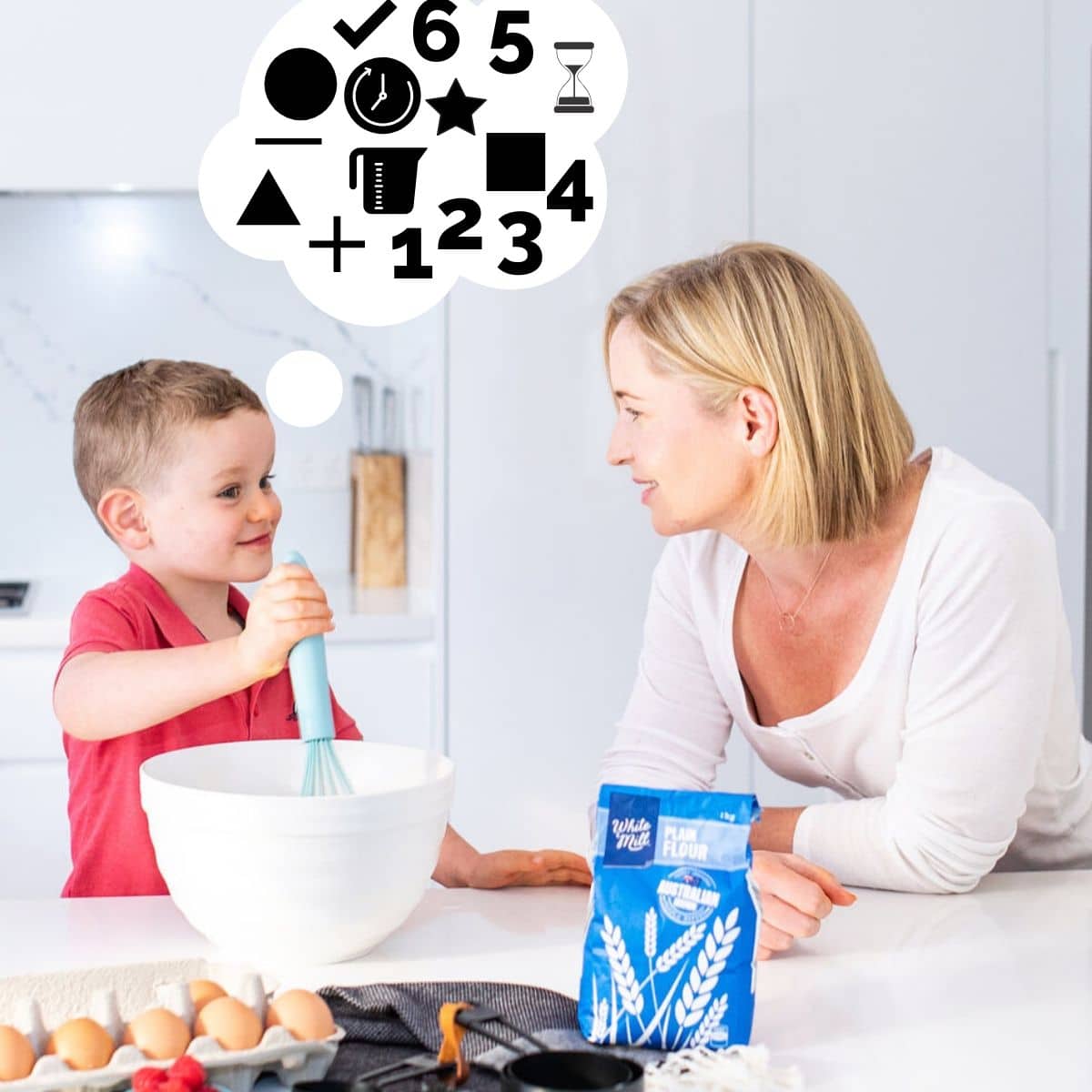
Cooking with children has many benefits, one of which is the opportunity it provides to explore early mathematical concepts with your kids.
Young children learn best when they are doing, playing and able to relate - cooking ticks all these boxes. It provides an experience where concepts become meaningful and that is when learning takes place and knowledge is retained.
It doesn't take a lot of extra time to talk about number, and other mathematical concepts when cooking with your children. However, the time spent together can go a long way in helping your child grasp and develop their mathematical skills.
No special recipes are required, you can get your children involved with any recipe and ask a range of questions to help develop their mathematics.
Below are some key early mathematical skills and some examples of how you can develop them in the kitchen.
Counting
Very young children are often able to chant the numbers one to ten but can't actually count numbers in a group. There are plenty of opportunities to practise this in the kitchen. Just make sure they point to each thing in the group as they are counting. Tell them when they have touched them all that that is the number in the group.
- Count the ingredients of a recipe, one at a time, using fingers to count.
- Ask your child to count out a number of ingredients (e.g 10 tomatoes for a salad, 15 blueberries as a topping etc)
- Count out loud how many cups/berries/tbsp etc you are adding to a recipe.
As said before, children can often recite numbers one to ten but find it more difficult to count from the middle of a sequence.
- Count yourself doing 5 stirs of a mixture, pause. Can your child continue the stirring and count on from that number?
- I need eight potatoes here's one, two three now you continue counting until we get to eight.
Practice these skills over and over again through the activities below.
- Ask if you have enough / not enough of an ingredient. Count to check
- Ask how many of something you have
- Ask your child to count out the correct number of plates, glasses, and cups when setting the table
Extend their numerical vocabulary by using ordinal numbers 1st, 2nd, 3rd etc
- The first task we have to do is..., the second task is...
Addition and Subtraction
If children carry out addition and subtraction tasks with concrete material, their ability on paper will be greatly enhanced. Again, there are many opportunities in the kitchen to practise this. Remember to ask a variety of questions to extend their thinking.
- Count how many cookies are on the tray, add one more - how many now?
- We have 10 strawberries if I eat one how many are left?
- We need to use 2 bananas, how many does that leave in the bowl?
- We have filled 6 muffin cups. How many muffin cups do we still need to fill? How many does that make?
- How many cookies have gone?
- We have added 2 different fruits to our fruit salad, how many more do we need to add to make 4?
Number Recognitions
- Encourage children to find/read the numbers on the recipe, scales, packaging, oven etc.
Sorting
- Sort ingredients by colour / size / shape etc
- Sort the wet/dry ingredients for a recipe
Recognising Patterns and Shapes
Very young children gain a lot of early geometrical knowledge through playing with constructions material. Doing the things suggested below help them develop their thinking about and their language of shape and pattern.
- Use a range of cookie cutters. Discuss which shapes are curved/straight, have corners and how many edges/sides it has. Name the shapes you use (circle, square, rectangle, star etc)
- Play with dough/mixtures. Can you roll/bend/change its shape.
- Look at the shapes of tins, bowls etc. Ask your children to find three things in the house that are the same shape.
- Create patterns when making fruit kebabs or plating food.
- Ask your child to set the table just as you did.
Measurement
To fully understand what they are doing when they use standard measurement units like metres, grams, litres etc children need to develop lots of language around measurement. You can use lots of measurement language when talking to your children in the kitchen.
- How many cookies do you think will fit on the tray?
- Which bowl do you think will fit all these ingredients in best?
- Which container do you think will hold the most? Why?
- Let children hold two items (bag of flour/sugar/can etc), discuss which is heavier/lighter.
- How many blueberries do you think it will take to fill a cup?
- Which slice is biggest, yours or mine?
- Which carrot is the thickest/thinnest/longest/shortest?
- Do we have enough mixture to fill this?
- Which container is full/half-full/empty?
- How many grapes do you think are in this cup?
Understanding Time
As well as developing language around time - yesterday, next week, tomorrow, allowing children to understand what a period of time feels like is also important. Try these ideas below.
- We need to stir/blend for 10 seconds. Can we count down from 10?
- This recipe says we need to cook it for 10 mins. How many times can you run around the garden/go up and down the stairs in that time?
- We need to cook this for 20 mins, that is like watching one episode of....(favourite programme)
- We will save this for tomorrow.
- We have no bananas left, we used them all yesterday.
- We will freeze this for next Wednesday, how many days is that?
Recipe Cards
Although you don't need special recipes to get talking about math in the kitchen, I have created 3 recipe cards, with questions you could ask, to help you get started.
- Tortilla Pizzas Recipe & Question Card
- Blender Muffins Recipe & Question Card
- Cherry Bliss Balls Recipe & Question Card
Remember - Choose a time to go into the kitchen when you and your children are in the right frame of mind. You don't want to be attempting this when your children are tired or hungry or you are exhausted at the end of the day. Be prepared with ingredients and equipment, this will all help in making cooking with your children easier and more enjoyable.
Have fun!
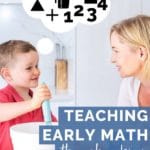
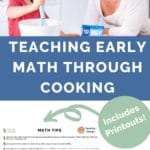
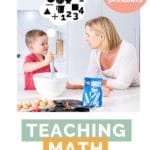
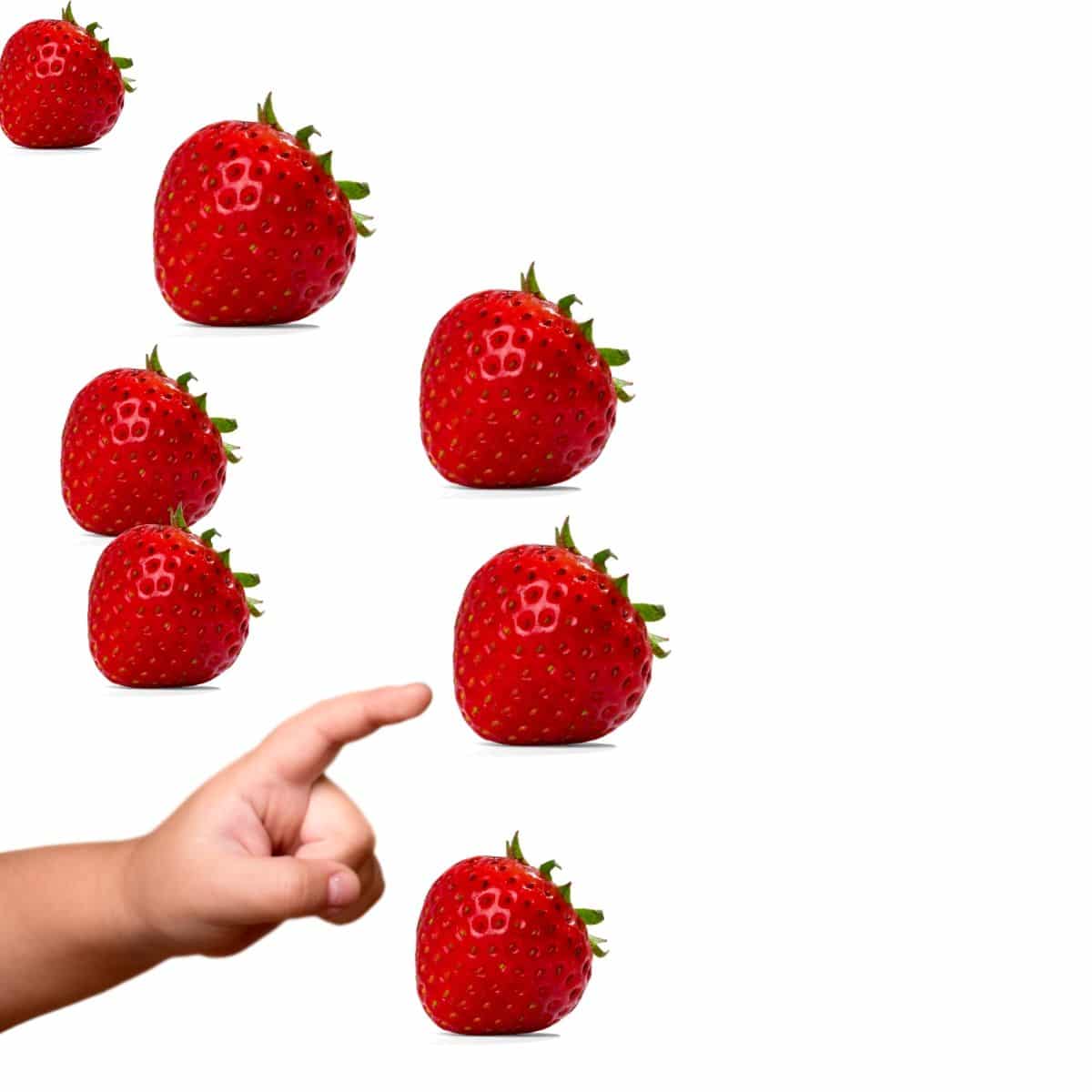
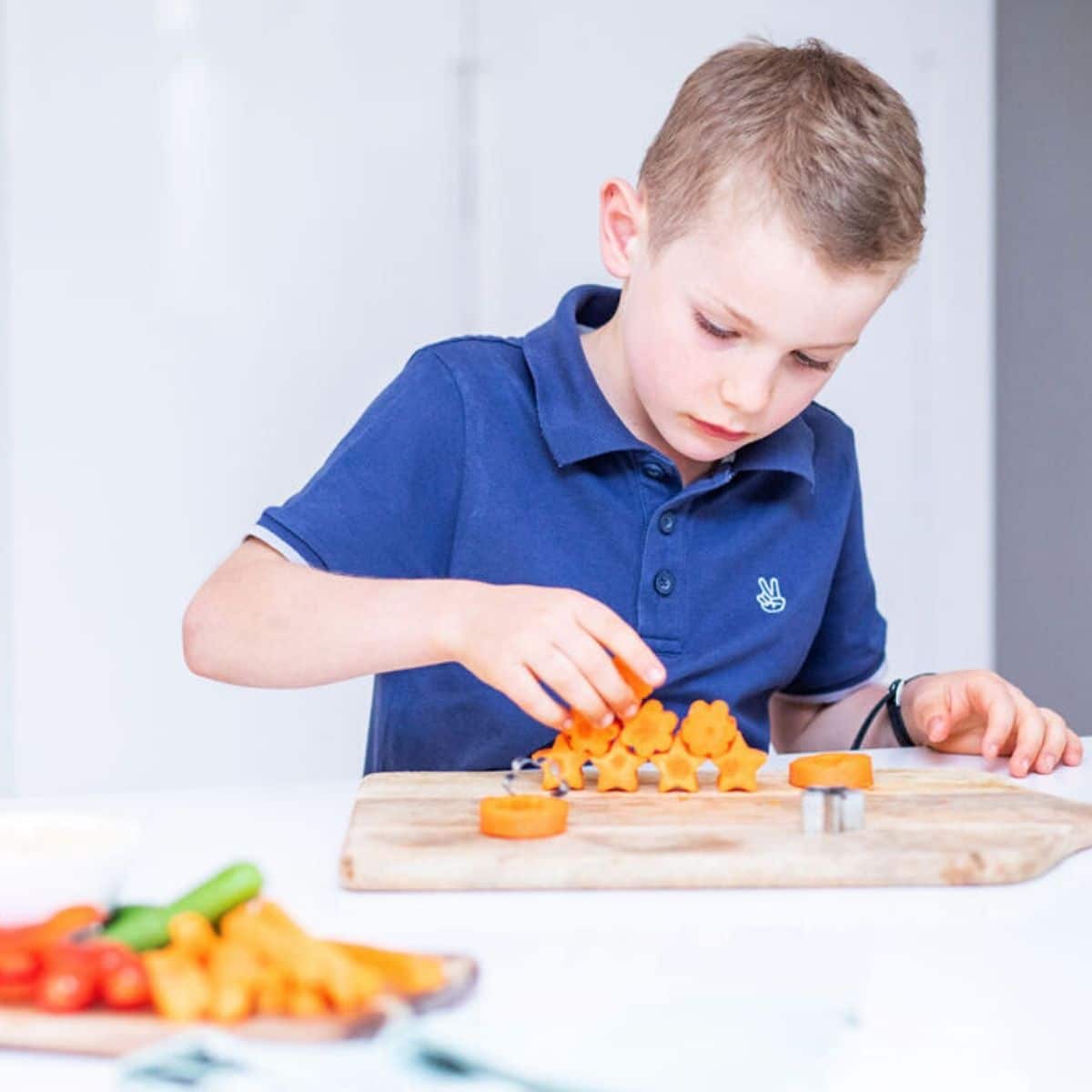
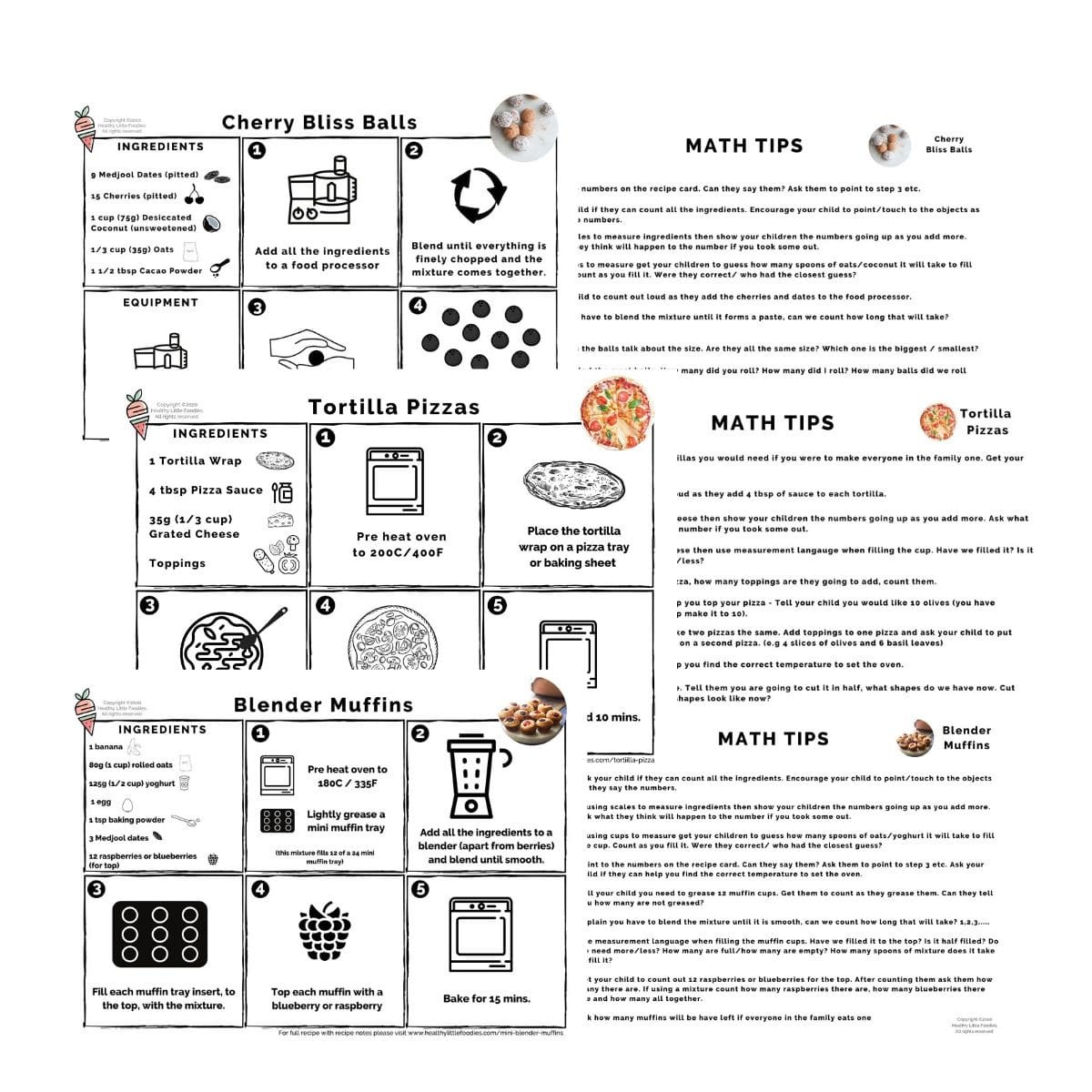
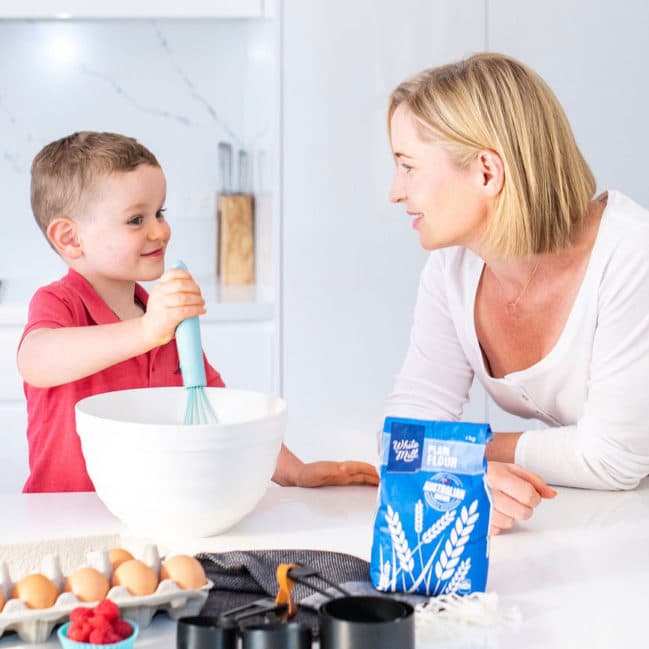
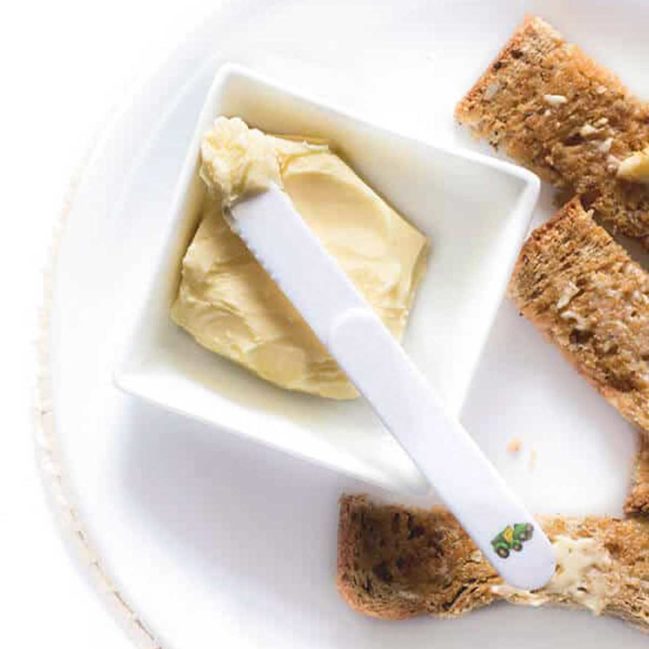
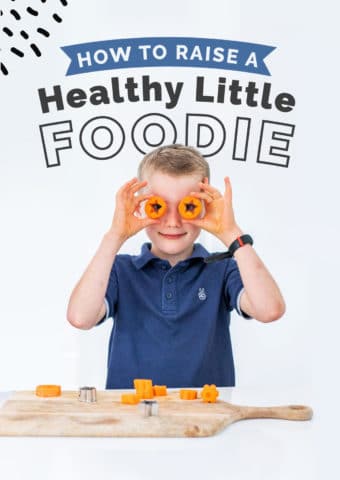
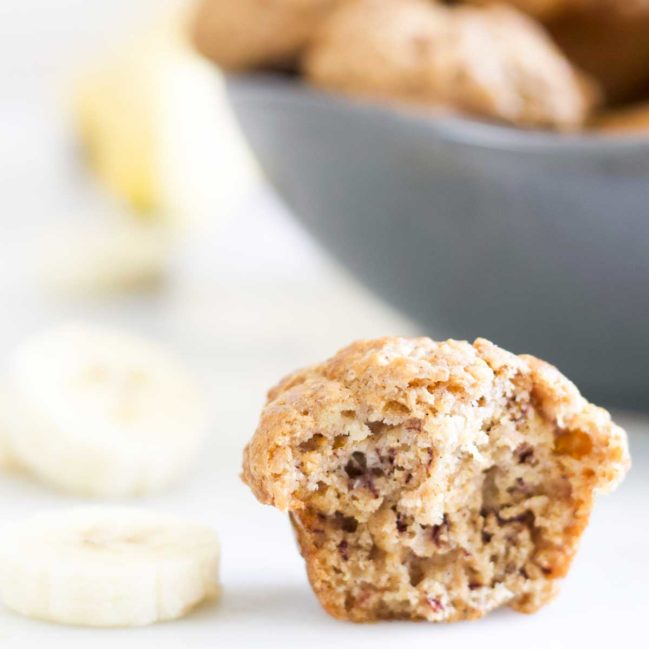
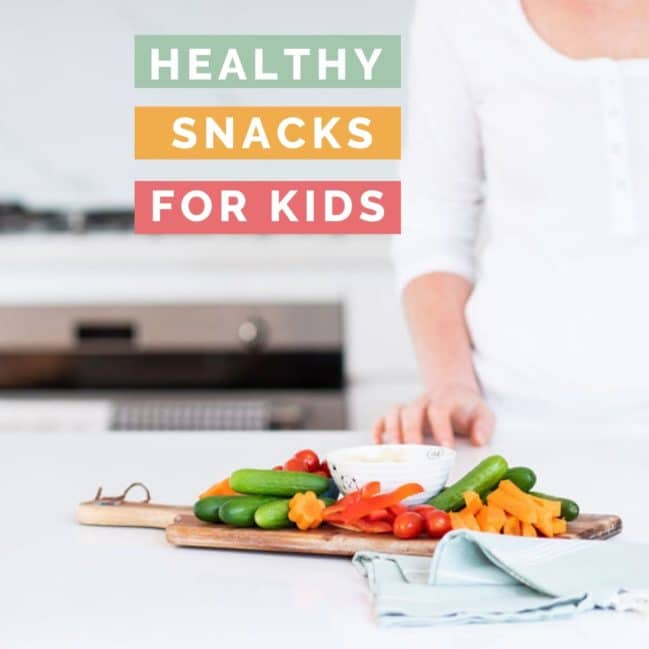
thara says
Cooking can be a useful way in order to teach everything. This week we made a chocolate cake and a four star salad as well. I started things off by explaining why food safety and nutrition were very important to our overall body and brain development. Then we moved onto other more interesting topics like food miles, food banks, use by, best before dates, and so on. Last week we covered different reasons why people need to eat food. We bake cakes, prepare salads and the like.